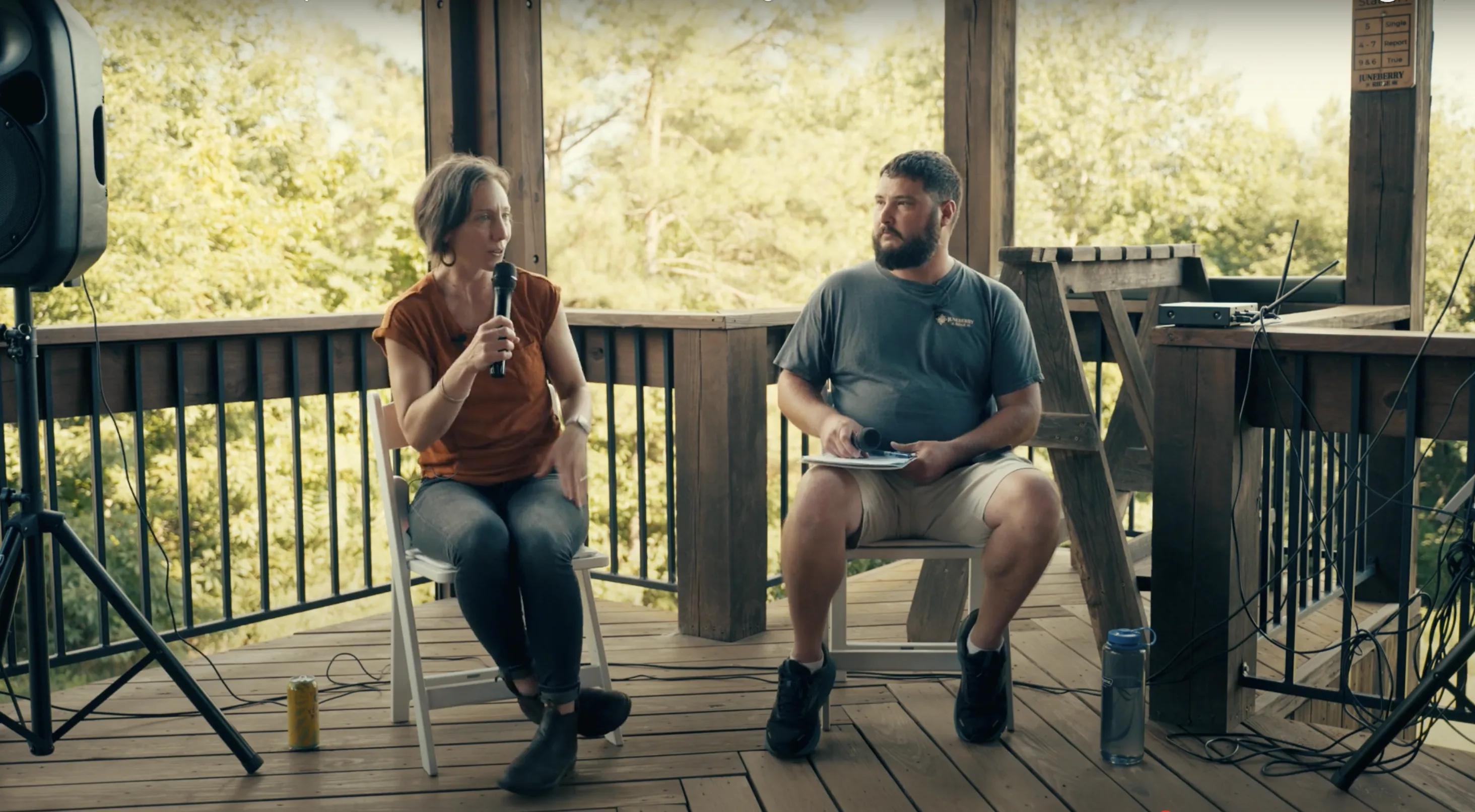Can meat production be safe for people and the environment?
What does animal welfare look like in ethical meat practices? On the final day of Juneberry Jams, our 3-day summer festival welcomed Meredith Leigh, a renowned expert in ethical meat, to our regenerative farm. Through a hog butchery workshop, she graciously shared her wealth of knowledge on the factors that make certain cuts of regeneratively raised meat tender and flavorful, along with cooking tips to maximize the delicious potential of lesser known but highly nutritious cuts. Not only did guests get hands-on experience of butchering a half hog, but it paved the way for our enlightening discussion on ethical meat later that evening during our final fireside chat. Watch the fireside chat here.
The ethical meat movement
At precisely 5:15 pm that day, our COO, Ashton Thompson, introduced our speaker, Meredith Leigh, who has an impressive background as a former vegan turned livestock farmer, owner of a butcher shop, restaurateur, non-profit executive, mother, educator, and writer. With over two decades of experience, Meredith has devoted her career to ethical meat production. She challenged the common misconception that all meat is universally damaging to both people and the environment. Instead, she emphasized how supporting ethical meat producers allows us to contribute to a more compassionate and regenerative food system. She highlighted that every choice we make as consumers has the power to shape the future of meat production and animal welfare, along with the flourishing of our planet and even our own health.
We were encouraged to reassess our relationship with food and adopt more conscientious choices moving forward.
Connecting practices: regenerative and ethical meat at Juneberry Ridge
Our regenerative farming practices are grounded in a deep respect for our animals, the land, and our community. It’s a conscious choice, woven into the fabric of everything we do. We prioritize animal welfare, providing a nurturing environment where our pigs and chickens can roam freely to forage, play, and express their natural instincts. We believe that raising our animals in a way that honors their dignity and worth isn’t just the right thing to do, but it results in meat that is healthier and tastes better, too.
When you enjoy our regenerative meat, you’re not just savoring the flavor and tenderness of our products, you’re also supporting our mission to change the way the world grows.
Our fireside chat and hog butchery workshop with Meredith Leigh exemplify Juneberry Ridge’s deep-rooted belief in fostering connections, nurturing a healthier planet, and supporting regenerative farming practices.
Attendees left inspired to make conscious decisions based on what they learned. Together, we are exploring, learning, and championing ethical meat practices so that our choices pave the way for a better future.
About Juneberry Jams
Juneberry Jams is a one-of-a-kind annual summer festival celebrating regenerative agriculture, great music, and farm-fresh food. In our third year, we were excited to introduce a new addition to the event, a speaker series offering guests a chance to learn about how our food systems are changing for the better through farming practices that seek not to sustain our planet, but to restore it.
Regenerative agriculture is quickly becoming a buzzword across major industries. However, there’s no better place to learn about soil health, local food, and holistic farm management than our local farms forging a path for healthier agriculture.
Juneberry Jams was made possible by title sponsor and community partner, Uwharrie Bank, and was produced in partnership with Tosco Music.

About Meredith Leigh
Meredith Leigh is a teacher, writer, and consultant with 20 years of experience in the food system industry. She has owned and managed farms, worked in the non-profit sector, owned a restaurant and butchery shop, and has extensive experience in consulting and travel.
Her books, ‘The Ethical Meat Handbook’ and ‘Pure Charcuterie,’ have received accolades for their timely insights. She resides with her partner and four children on ancestral Cherokee land in Asheville, North Carolina.




